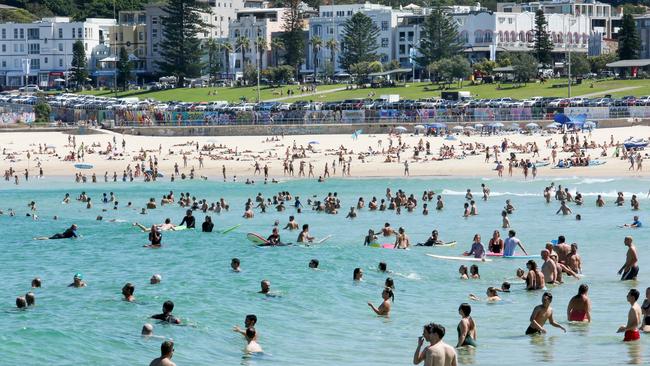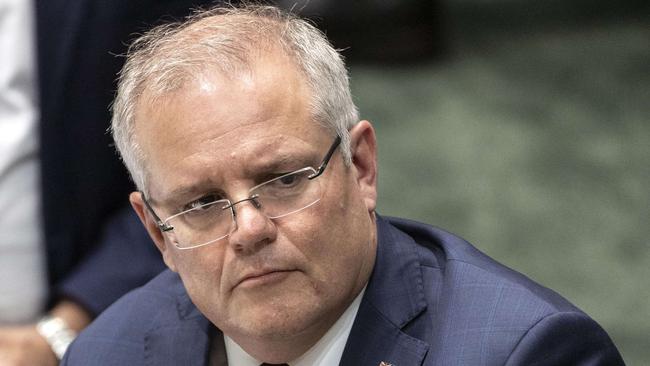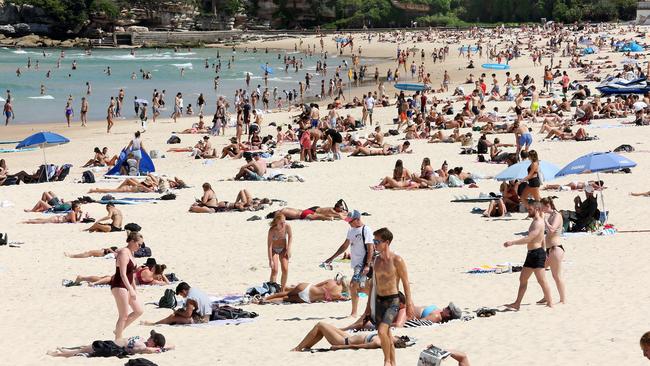Forget phasing, Australia needs an immediate national COVID-19 lockdown
The best way to win a war is to win it quickly. A two-week total lockdown would enable us to stop the spread of coronavirus, identify and treat the victims, and reboot the economy, writes James Morrow.
Rendezview
Don't miss out on the headlines from Rendezview. Followed categories will be added to My News.
There may not be bombers overhead or submarines sneaking into the Harbour, but Australia is in no uncertain terms at war.
In this war as with every other, the aim must be to achieve victory – as quickly as possible, with as few casualties as possible.
Everyone, the prime minister reminded us in a speech before parliament Monday morning, will have to do their part.
Which is fair enough. No one could look at the scenes coming out of Europe or Iran or China and think that, even with all our relative differences and advantages, we’d want to risk that sort of carnage here.
And it’s clear with the number of coronavirus cases spiking, officials will soon be ratcheting up restrictions to enforce “social distancing” and slow the spread in what could ultimately be a deadly and brutally expensive game of catch-up that will not be won until a vaccine or treatment is found.
But what if there were a way to quickly ferret out and defeat the coronavirus, at least in Australia, in a matter of weeks, rather than the minimum six months the prime minister flagged Monday?

That’s the intriguing idea floated by Dr. David L. Katz, public health expert and founding director of Yale University’s Yale-Griffin Prevention Research Centre in an interview with the New York Times’ Thomas Friedman this week.
Yes, those who are familiar with Friedman’s byline will recognise him as the prophet for exactly the sort of thoughtless globalism (and over-reliance on China) that got us into this mess. But in a crisis, every idea counts.
Essentially, Katz tells Friedman that countries fighting the disease should “use a two-week isolation strategy” to beat the virus.
This would mean confining all but the most essential workers to quarters for a fortnight, or perhaps a little more – though of course there would have to be crystal-clear messaging on how everyone would be looked after.
The effect would be to press the pause button on the entire nation to allow doctors and officials to identify who has the virus without others being infected during those critical two weeks where patients can be infectious, but not show any symptoms.
Those who showed symptoms over that period could then be isolated, tested, and treated – while also, at the end of the fortnight, allowing those in low-risk categories to “pivot” back to work.

The hope is that such a strategy would allow American society to “reboot” itself in a matter of weeks – and there’s every reason to think such a program would actually be more effective and easier to implement in Australia than in the US.
The key to making it work would be enforcement of the two-week quarantine and definitively isolating “the elderly, people with chronic diseases and the immunologically compromised for whom coronavirus is most dangerous.”
The point, Katz tells Friedman, is not to wait until there is zero spread before opening things up again – that will always impossible.
Instead, the strategy would aim to “(minimise) severe cases by sheltering the most vulnerable from spread whether by those with, or those without, symptoms” – while, crucially, getting the economy moving again sooner rather than later.
Because unlike other wars, where industry spools up to produce ammunition and equipment, this war will force far too many of us to stand down.
And a phased approach also leads to tension and uncertainty.
Just look at how last Sunday’s suggestion that the NSW government was going to unilaterally “lock down” the state touched off another wave of panic buying – first in supermarkets, and then in bottle shops, when people worried (not without cause) that Gladys Berejiklian might not see liquor stores as an “essential service”.
Australia is also far more likely to be able execute such a strategy for reasons both physical and psychological.

Never before have we been so blessed to be an island continent: We have the ability, should we choose, to keep our borders closed to all but cargo ships and flights, minimising the chance of reinfection, while either a cure or vaccine is found or the virus simply runs its course.
Let’s be clear – this is not some “cure is worse than the disease” rationalisation for doing nothing, letting it run its course, and hoping for the best.
Coronavirus is deadly serious business, and it is becoming increasingly clear that far from being a “boomer remover” that only hits the old it can take down otherwise healthy people in any age group.
This fortysomething columnist is only leaving the house for quick trips to get the papers and a loaf of bread, and those who can do the same should as well. But that’s not sustainable forever, and the longer we pause the economy to conquer coronavirus, the harder it will be to get things started again.
And just as strong public health systems cost money that will be harder to come by the deeper any coronavirus-related recession becomes, so too do downturns exact their own health costs in doctors not visited, medicines not bought, and in the worst cases, self-harm.
If we are going to get to the point where the only solution to coronavirus is a temporary total lockdown of society, it may be better to just get it over and done with.
An evil little virus, after all, is not an enemy army that can brought to surrender by half-measures.
James Morrow is the opinion editor for The Daily Telegraph.
Originally published as Forget phasing, Australia needs an immediate national COVID-19 lockdown



